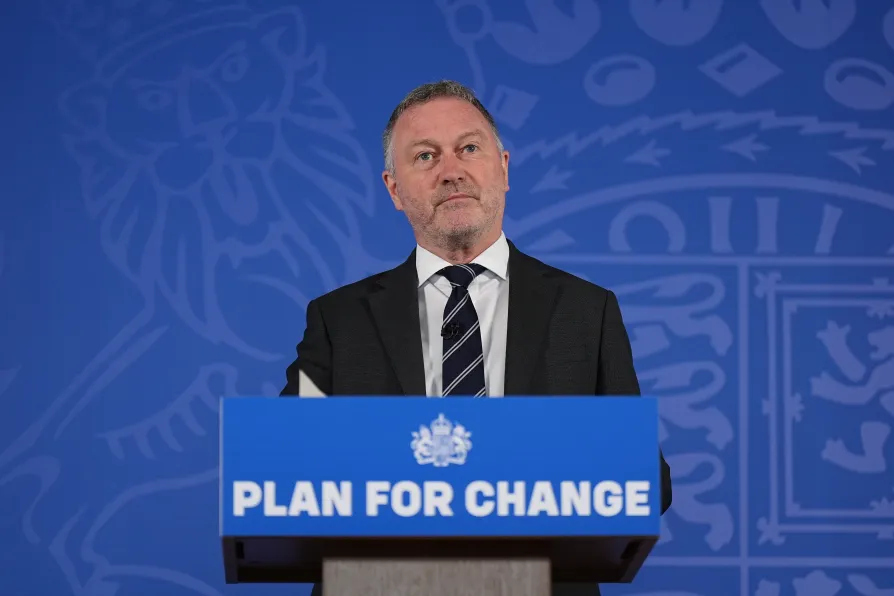Overhaul fails to end privatisation of troubled water sector

 Environment Secretary Steve Reed gives a speech at Kingfisher Wharf, London, following the publication of the Independent Water Commission report, July 21, 2025
Environment Secretary Steve Reed gives a speech at Kingfisher Wharf, London, following the publication of the Independent Water Commission report, July 21, 2025
BRITAIN faces years of rising water bills after the government announced that regulator Ofwat will be abolished as part of an overhaul that failed to end the privatisation of the troubled sector today.
Campaigners and unions warned that “tinkering around the edges” and refusing to nationalise the failed privatised model won’t fix decades of corporate profiteering after Environment Secretary Steve Reed made the announcement following the publication of an independent review by Sir Jon Cunliffe.
The report, which called for Ofwat to be scrapped as one of 88 measures to tackle problems in the water sector, was commissioned by the government to answer public fury over pollution in rivers, lakes and seas, soaring bills, shareholder payouts and bosses’ bonuses.
Mr Reed claimed that households will “never again” face major water bill hikes as overlapping water regulation by four different bodies are pulled into one “single powerful” regulator responsible for the whole sector.
He added that the government would cut sewage pollution by half by 2030 — based on a new, higher baseline of pollution in 2024 compared with previous targets relating to 2021.
But when questioned about future bill hikes, Mr Reed insisted it was merely “the intention” that the reforms would ensure there was adequate investment in the long term to prevent the kind of 30 per cent increase seen in customer water bills last year at the next price review in five years.
In a separate speech, Sir Jon warned that costs and bills are likely to continue to rise, as he recommended the government introduce a national social tariff to help households struggling to pay.
“The cost of producing water and wastewater services is likely to increase over the medium and longer term as the industry has to replace ageing assets, respond to higher environmental and public health standards and continue to adapt to the challenges of population growth and climate change,” he said.
“And against that likely background of rising costs and rising bills, there is a need for a stronger safety net for the most vulnerable when exposed to water poverty.”
Environmental charity River Action CEO James Wallace said the Independent Water Commission had “blinked” after being given “a once-in-a-generation opportunity to reset a broken and corrupted system.
“After three decades of privatisation, there is no evidence it can work. The report diagnoses symptoms but avoids the cure, appeasing the vulture capital markets and failing to propose alternative public-benefit investment, ownership and governance models that have been proven across Europe.”
We Own It lead campaigner Sophie Conquest said: “Changing the sign on the regulator’s office building will not reverse the damage of 35 years of privatisation.
“With 60 per cent more serious pollution incidents, rising bills, mass hosepipe bans and crumbling infrastructure — what we are witnessing is the catastrophic collapse of privatised water.”
Surfers Against Sewage chief Giles Bristow said: “Look past the glossy veneer of today’s Independent Water Commission recommendations and you’ll see it utterly fails to prioritise public benefit over private profit.”
Sir Jon’s review was not allowed to fully explore renationalising water companies; ministers have refused to entertain the possibility, with Mr Reed insisting nationalisation would cost £100 billion and slow down efforts to cut pollution.
But Unison general secretary Christina McAnea said: “A safe, reliable sustainable water supply shouldn’t be too much to ask for.
“But instead of protecting consumers from higher bills and communities from sewage pollution, greed has been the prime motivation with obscene bonuses and shareholder dividends.
“The Cunliffe report hasn’t been able to consider the issue of renationalising a privatised water system that’s been broken for decades. It’s allowed water companies to profit from their failure to invest in a fundamental public service.
“Only wholesale changes will fix the system. Tinkering around the edges and failing to consider all options won’t deliver the change that is desperately needed.”
GMB national officer Gary Carter said: “The Cuncliffe report lays bare what GMB has said for years — water privatisation has been a disastrous failure.
“Our rivers and waterways have been fouled, while bills rocket and fat cat bosses get rich.
“Meanwhile the water infrastructure crumbles through lack of investment.
“It’s a disgrace — and one Ofwat has overseen. Now is the time to fundamentally reform the water sector and renationalise this vital resource.”
Unite general secretary Sharon Graham said: “Water workers and the public will just think this report is a bad joke — it doesn’t even consider returning water to public ownership.
“If the government thinks a new regulator will solve the problems of privatisation they will be badly disappointed.”














